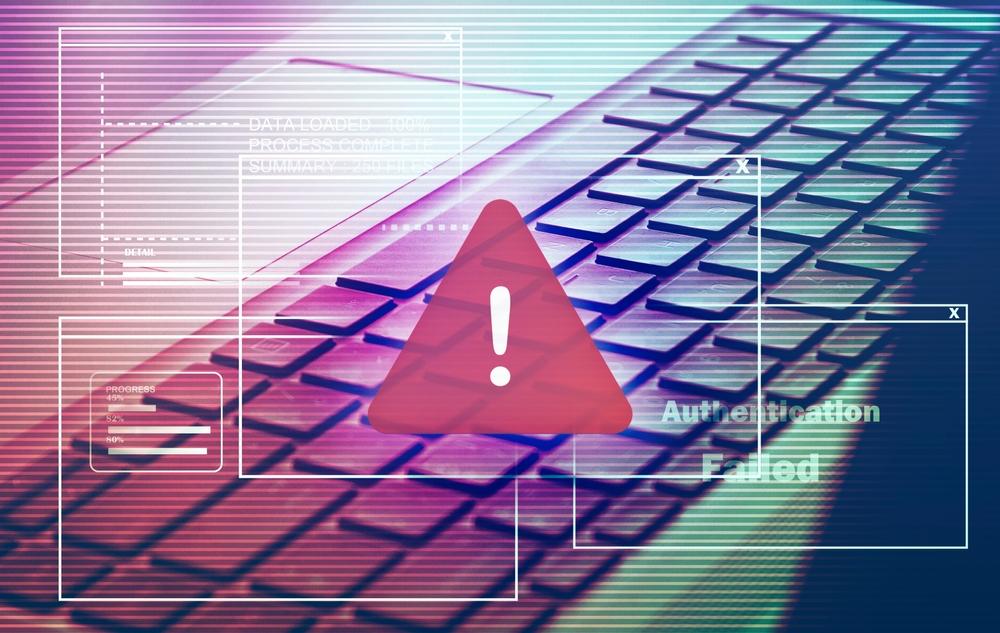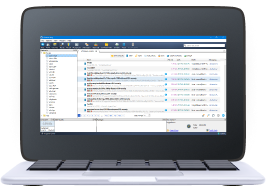The Internet is an intrinsic part of all our lives, and that makes us all vulnerable to online attacks. Cybercriminals are always developing new tactics to steal data, install malware, and disrupt online activities.
Newshosting users benefit from strong security features to defend against even the most advanced cyber attacks.
Common Online Security Threats in 2024
Phishing Attacks
Phishing attacks are increasingly sophisticated. Cybercriminals send emails or messages designed to deceive users into revealing sensitive information, such as passwords or financial details. These attacks often impersonate trusted institutions and lure individuals into clicking malicious links or downloading harmful attachments. Awareness and skepticism of unsolicited communications remain key defenses against phishing.
Malware Infections
Malware remains one of the most significant digital threats. This category includes viruses, ransomware, spyware, and other forms of malicious software that can infect devices, steal data, or disrupt functionality. Whether it’s locking users out of their systems or silently collecting personal information, malware’s impact can be devastating. Regular device scans, safe browsing habits, and up-to-date security software are crucial in combating malware.
Social Engineering Attacks
Social engineering relies on manipulation rather than technical hacking. Attackers use psychological tricks to convince individuals to share confidential data or grant access to secure systems. These attacks often come in the form of phone calls, emails, or messages that impersonate trusted figures or organizations. Educating yourself on common tactics, such as impersonation or urgency cues, can help prevent falling victim to these schemes.
Zero-Day Exploits
Zero-day attacks take advantage of software vulnerabilities that are unknown to the developer. This leaves users exposed to attacks until a patch is released. These attacks are particularly dangerous because no immediate fix exists at the time of the breach. Staying vigilant about updates and using systems that prioritize rapid patching can help reduce the risk of zero-day vulnerabilities being exploited.
Best Practices for Overall Online Safety
Navigating the Internet safely requires a proactive approach to security. With cyber threats evolving daily, relying on basic security measures is no longer enough. Whether you’re managing personal accounts or handling sensitive data, implementing strong security habits is key to minimizing your risk of falling victim to attacks. Simple actions like creating complex passwords, avoiding suspicious links, and regularly updating software can go a long way in protecting your online activities.
In addition to these foundational habits, employing advanced security measures like multi-factor authentication (MFA) and virtual private networks (VPNs) adds significant layers of defense. MFA ensures that even if a password is compromised, unauthorized access is still blocked, while a VPN encrypts your Internet traffic, shielding your activity from prying eyes. Being mindful of how and where you share information online further reduces your exposure to common security risks.
- – Strong Passwords & Multi-Factor Authentication (MFA): Use unique, complex passwords for all your online accounts. Wherever possible, enable MFA for an extra layer of protection.
- – Beware of Suspicious Links & Attachments: Don’t click on links or open attachments from unknown senders. Verify the legitimacy of any link before clicking, and be cautious of unsolicited emails.
- – Software Updates: Keep your operating system, web browser, and other applications updated with the latest security patches.
- – Secure Your Wi-Fi: Avoid using public Wi-Fi for sensitive activities unless you have a VPN (Virtual Private Network). Public Wi-Fi networks can be vulnerable to eavesdropping.
- – Encrypt Your Activity: Always use a VPN or SSL encryption when you’re transmitting data to ensure that it can’t be intercepted and read.
- – Regularly Scan for Malware: Use a high-quality virus scanner that not only draws from a database of known malware but also employs heuristic scans to spot suspicious files.
By consistently practicing these strategies and integrating strong security tools into your routine, you can stay ahead of many common online threats. Online safety is an ongoing effort. With the right precautions, you’ll be better equipped to navigate the digital world without compromising your personal or professional security.
How Newshosting Protects You
Newshosting’s comprehensive, multi-factor security features:
- – SSL Usenet Connections: Encrypt your Usenet connection, safeguarding data transfer from prying eyes and ensuring your privacy.
- – Available VPN: Protect all your Internet traffic with a VPN, masking your online activity and location, which is especially beneficial on public Wi-Fi.
- – Ad Blocking: Eliminate intrusive advertisements and improve your browsing experience while avoiding malicious ads that contain malware.
- – Secure DNS (Domain Name System): Send your website requests to Newshosting’s secure DNS servers to prevent hijacking and ensure you connect to legitimate websites.
- – Threat Protection & Phishing Defense: Block malicious content before it reaches you.
Every Newshosting Usenet account includes all these security features to protect all your online activity, including Usenet browsing.
Staying Secure Online: A Continuous Journey
The digital threat landscape is constantly evolving. Significantly reduce your risk of falling victim to cyberattacks by staying informed about the latest tactics and employing the best practices outlined above using Newshosting’s comprehensive security features.







